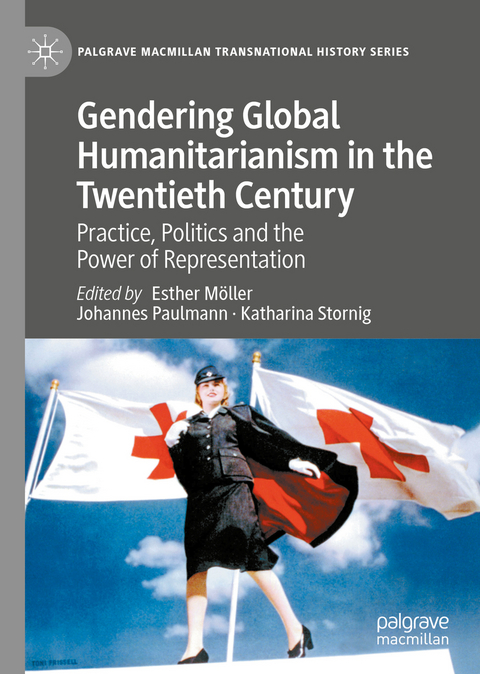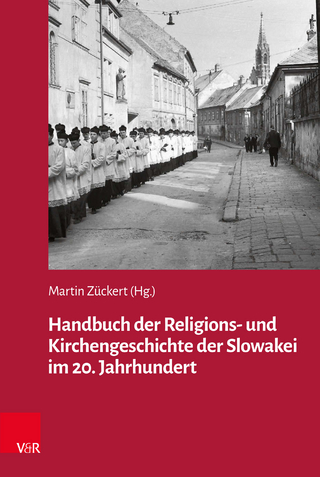
Gendering Global Humanitarianism in the Twentieth Century
Springer International Publishing (Verlag)
978-3-030-44629-1 (ISBN)
This volume discusses the relationship between gender and humanitarian discourses and practices in the twentieth century. It analyses the ways in which constructions, norms and ideologies of gender both shaped and were shaped in global humanitarian contexts. The individual chapters present issues such as post-genocide relief and rehabilitation, humanitarian careers and subjectivities, medical assistance, community aid, child welfare and child soldiering. They give prominence to thebeneficiaries of aid and their use of humanitarian resources, organizations and structures by investigating the effects of humanitarian activities on gender relations in the respective societies. Approaching humanitarianism as a global phenomenon, the volume considers actors and theoretical positions from the global North and South (from Europe to the Middle East, Sub-Saharan Africa, South and South East Asia as well as North America). It combines state and non-state humanitarian initiatives and scrutinizes their gendered dimension on local, regional, national and global scales. Focusing on the time between the late nineteenth century and the post-Cold War era, the volume concentrates on a period that not only witnessed a major expansion of humanitarian action worldwide but also saw fundamental changes in gender relations and the gradual emergence of gender-sensitive policies in humanitarian organizations in many Western and non-Western settings.
Esther Moeller is Research Associate at the Liebniz Institute of European History in Mainz, Germany. Johannes Paulmann is Director of the Leibniz Institute of European History at Mainz, Germany. Katharina Stornig is Junior Professor of Cultural History at the University of Giessen, Germany.
1. Gendering Twentieth-Century Humanitarianism: An Introduction.- Part I: Masculinities and Femininities in Humanitarian Practice and Discourse.- 2. Humanitarian Masculinity: Desire, Character and Heroics, 1876-2018.- 3. Protestant Missionaries, Armenian Refugees and Local Relief: Gendered Humanitarianism in Aleppo, 1920-1939.- 4. Maternalism and Feminism in Medical Aid: The American Women's Hospitals in the United States and in Greece, 1917-1941.- Part II: Gender and the Politics of Humanitarianism.- 5. The Orphan Nation: Gendered Humanitarianism for Armenian Survivor Children in Istanbul, 1919-1922.- 6. The Politics of Gender and Community: Non-Governmental Relief in Late Colonial and Early Postcolonial India.- 7. Humanitarian Service in the Name of Social Development: The Historic Origins of Women's Welfare Associations in Saudi Arabia.- Part III: The Power of Gendered Representations.- 8. Perilous Beginnings: Infant Mortality,Public Health and the State in Egypt.- 9. Parenthood as Aid: "Fathers", "Mothers" and International Child Welfare from the late 1940s to the 1970s.- 10. In/Visible Girls: "Girl Soldiers", Gender and Humanitarianism in African Conflicts, c. 1955-2005.- 11. Gender Histories of Humanitarianism: Concepts and Perspectives.
| Erscheinungsdatum | 26.08.2020 |
|---|---|
| Reihe/Serie | Palgrave Macmillan Transnational History Series |
| Zusatzinfo | XIII, 331 p. 5 illus. |
| Verlagsort | Cham |
| Sprache | englisch |
| Maße | 148 x 210 mm |
| Gewicht | 580 g |
| Themenwelt | Geisteswissenschaften ► Geschichte ► Allgemeines / Lexika |
| Geisteswissenschaften ► Geschichte ► Allgemeine Geschichte | |
| Schlagworte | development aid • female activism • female missionaries • Feminism • feminist theory • gender and conflict • Gender Relations • Humanitarian aid • philanthropy • post-genocide relief • Red Cross • Social Work |
| ISBN-10 | 3-030-44629-8 / 3030446298 |
| ISBN-13 | 978-3-030-44629-1 / 9783030446291 |
| Zustand | Neuware |
| Haben Sie eine Frage zum Produkt? |
aus dem Bereich


